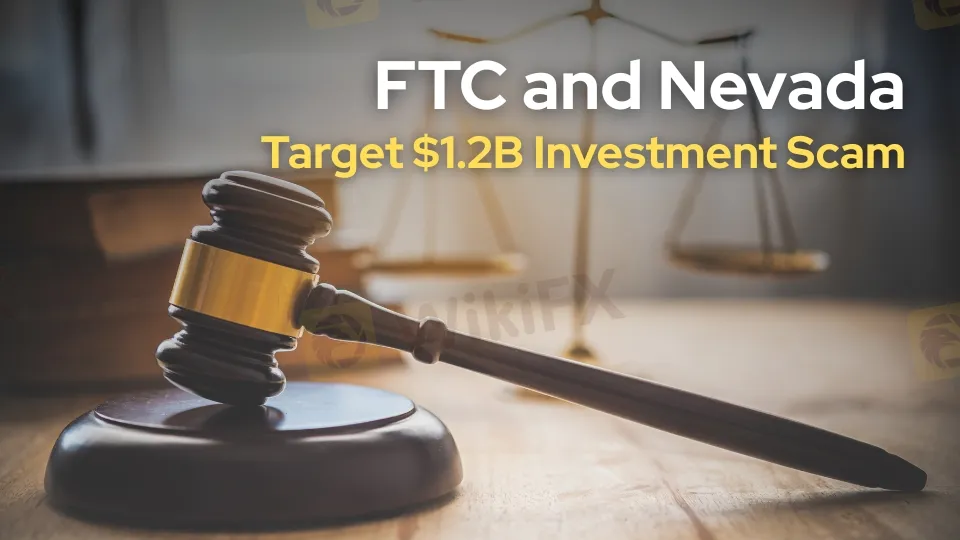简体中文
繁體中文
English
Pусский
日本語
ภาษาไทย
Tiếng Việt
Bahasa Indonesia
Español
हिन्दी
Filippiiniläinen
Français
Deutsch
Português
Türkçe
한국어
العربية
FTC and Nevada Target $1.2 Billion Investment Scam | IML Exposed
Abstract:FTC and Nevada crack down on IML scam, exposing false earnings claims and deceptive multi-level marketing tactics that stole over $1.2 billion from consumers.

The Federal Trade Commission (FTC) and Nevada have launched legal action against a massive investment training and business venture scam, costing consumers over $1.2 billion. The scam, now branded as IYOVIA, previously operated under names like IM Mastery Academy, iMarketsLive, and IM Academy—collectively known as “IML.” Authorities claim IML used deceptive earnings promises to lure consumers into pricey financial training programs and a multi-level marketing (MLM) scheme.
The lawsuit, filed jointly by the FTC and Nevada Attorney General, accuses IML and its operators of making unfounded claims to sell training courses—some costing up to $400 monthly—and encouraging participants to recruit others into the MLM structure. Targeting young adults, IML allegedly exploited social media, including college pages, with posts showcasing fake trading successes and lavish lifestyles.

“This scam‘s scale is staggering, from wild earnings claims to unqualified ’trainers‘ posing as experts,” said Christopher Mufarrige, FTC Bureau of Consumer Protection Director. “It’s hurt countless consumers, especially young people trying to build a future. Were proud to partner with Nevada to stop it.”
IML‘s recruitment often begins with flashy social media ads—think luxury cars and exotic trips—posted by salespeople claiming huge profits from IML’s training. Interested consumers are then pitched at events or via calls, promised riches like retiring in their 20s or earning cash “in your sleep.” Yet, the FTC alleges these “trainers” lack credentials or proof of success, and the earnings claims are baseless. Evidence shows IML keeps no records of customer outcomes, while its own data reveals that 60% of users quit the training within a month, and 90% drop out by six months. Most MLM participants lose money, not make it.
Named in the suit are IML, owners Chris and Isis Terry, and key figures Jason Brown, Alex Morton, Matthew Rosa, and Brandon Boyd. The complaint cites violations of the FTC Act, Telemarketing Sales Rule, Restore Online Shoppers‘ Confidence Act (for the Terrys and IML), and Nevada laws. Filed in Nevada’s U.S. District Court, the case follows a unanimous 3-0 FTC vote to proceed.


Disclaimer:
The views in this article only represent the author's personal views, and do not constitute investment advice on this platform. This platform does not guarantee the accuracy, completeness and timeliness of the information in the article, and will not be liable for any loss caused by the use of or reliance on the information in the article.
Read more

Scammers Use AI to Fake Lim Guan Eng’s Support for Investment Scheme
A fake video showing former Penang Chief Minister Lim Guan Eng promoting an investment scheme has started spreading online. Lim has come forward to say the video is not real and was made using artificial intelligence (AI).

Tighter Scrutiny: Finfluencers Face Global Crackdown Amid Rising Risks
The UK’s Financial Conduct Authority (FCA), in collaboration with eight global regulators, has taken strong enforcement actions against unauthorised finfluencers. The move signals a broader regulatory shift toward stricter oversight of financial promotions on social media.

Interactive Brokers Enhance Account Security with FDIC Coverage
Interactive Brokers now offers up to $5M FDIC insurance for individual accounts, boosting protection on cash held in brokerage accounts starting May 2025.

Exnova Forex Broker Scam: Blocked Accounts, Lost Funds
Exnova forex broker slammed for scam tactics, blocking withdrawals, and dodging regulation. Victims warn of fraud risks—steer clear!
WikiFX Broker
Latest News
OctaFX and XM Trading Platforms to Be Blocked in Singapore
Nonfarm Data Lifts Market Sentiment, U.S. Stocks Rebound Strongly
ATFX Opens New Office in Cape Town's Portside Tower to Expand in Africa
Tighter Scrutiny: Finfluencers Face Global Crackdown Amid Rising Risks
Interactive Brokers Enhances PortfolioAnalyst with New Features
IronFX: A Closer Look at Its Licences
Eid ul Adha Celebration Continues – Grab the STARTRADER Offer Now!
2025 Broker Real - World Reviews: Share Your Insights & Grab Thousands in Rewards!
WikiFX Forex Community Expert AMA
Interactive Brokers Enhance Account Security with FDIC Coverage
Currency Calculator


